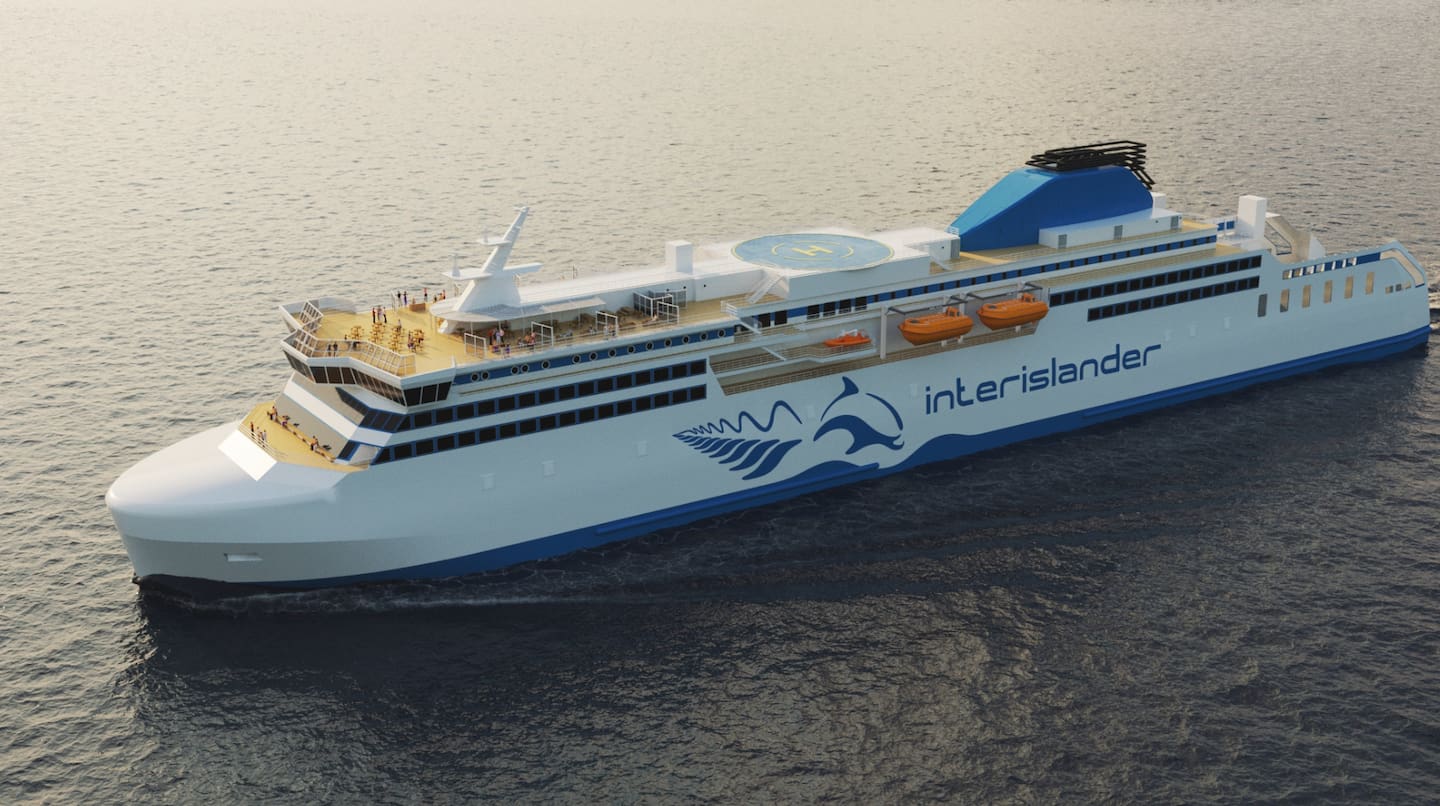The Government has officially signed a contract for two new Cook Strait ferries to replace the ageing Interislander fleet.
Rail Minister Winston Peters announced today the new rail-enabled ferries will cost $596 million under a fixed-price contract with Chinese shipbuilder Guangzhou Shipyard International.
Supporting infrastructure to be built at Picton and Wellington ports, as well as programme management and contingencies, will cost an additional $1.27 billion.
“Spending less than $1.7 billion means the taxpayer has saved $2.3 billion while still getting the ferries and infrastructure they want, because we have done away with the expensive consultants who hijacked the project by adding more and more infrastructure until Treasury warned the project would cost $4 billion,” Peters said.
The long-awaited contract was signed on Monday and comes nearly two years after the Government cancelled the previous iReX mega-ferry project, after costs ballooned to nearly $3b.
The termination of the contract with iRex shipbuilder Hyundai Mipo Dockyard cost taxpayers $144m in break fees, it was announced in August.
The new ferries will have a 30-year lifespan, with Peters saying Interislander will be expected to accumulate sufficient financial reserves to buy new ferries by their end of life, and they would need to be “put simply, structured like a normal business”.

The two new rail-enabled ferries will be hybrid, able to run off diesel and electricity. Photo / Ferry Holdings Ltd
Each ferry will be 200m long and 28m wide with capacity for 1530 passengers.
The ships will have capacity for 2.4km of lanes for trucks and 40 rail wagons, an increase in freight capacity compared to the current fleet.
They will also be hybrids, being able to switch between using diesel and electric power, a design that Ferry Holdings Limited said will allow the vessels to be more environmentally friendly.
Diesel engines, which will also be able to use biofuel, will generate electricity for main propulsion and onboard services. The new ferries will also be equipped with electric batteries to store energy and to supplement power for the ship.
These batteries have the capability to be recharged at sea and by using power from the shore, which helps save fuel and is better for the environment.

The ships will have capacity for 2.4 kilometres of lanes for trucks and 40 rail wagons, a increase in freight capacity compared to the current fleet. Photo / Ferry Holdings Ltd
Port infrastructure in Picton will have to be rebuilt to accommodate the larger ferries, while much of the Wellington side infrastructure can be reused and upgraded.
Guangzhou Shipyard International (GSI) is largely state-owned but partially publicly listed, and describes itself as a “national-level military enterprise”.
The choice of shipbuilder has previously raised questions, with critics warning foreign deals with the builder could indirectly fund China’s military expansion, and concerns from New Zealand’s spy agency over Chinese espionage targeting our critical infrastructure.
Interislander’s Cook Strait fleet is currently down to only two ships, after the Aratere was retired early and sold to scrap in India.
Construction of the new ferries is set to begin at GSI in 2027, and Peters plans to travel to the shipyard next week with Ferry Holdings representatives to “acknowledge the significant agreement, not just between the shipyard and Ferry Holdings but also as a contribution to economic relations with China”, he said.
The new ferries are expected to replace the current fleet by the end of 2029.
Ethan Manera is a Wellington-based journalist covering Wellington issues, local politics and business in the capital. He can be emailed at [email protected].
Take your Radio, Podcasts and Music with you







